Jump to Section Below:
Damage Assessment | Advocacy Efforts | Hurricane Relief For Landowners
DAMAGE ASSESSMENT
The Georgia Forestry Commission’s assessment of the storm show a total timber resource impact of $1.28 billion.
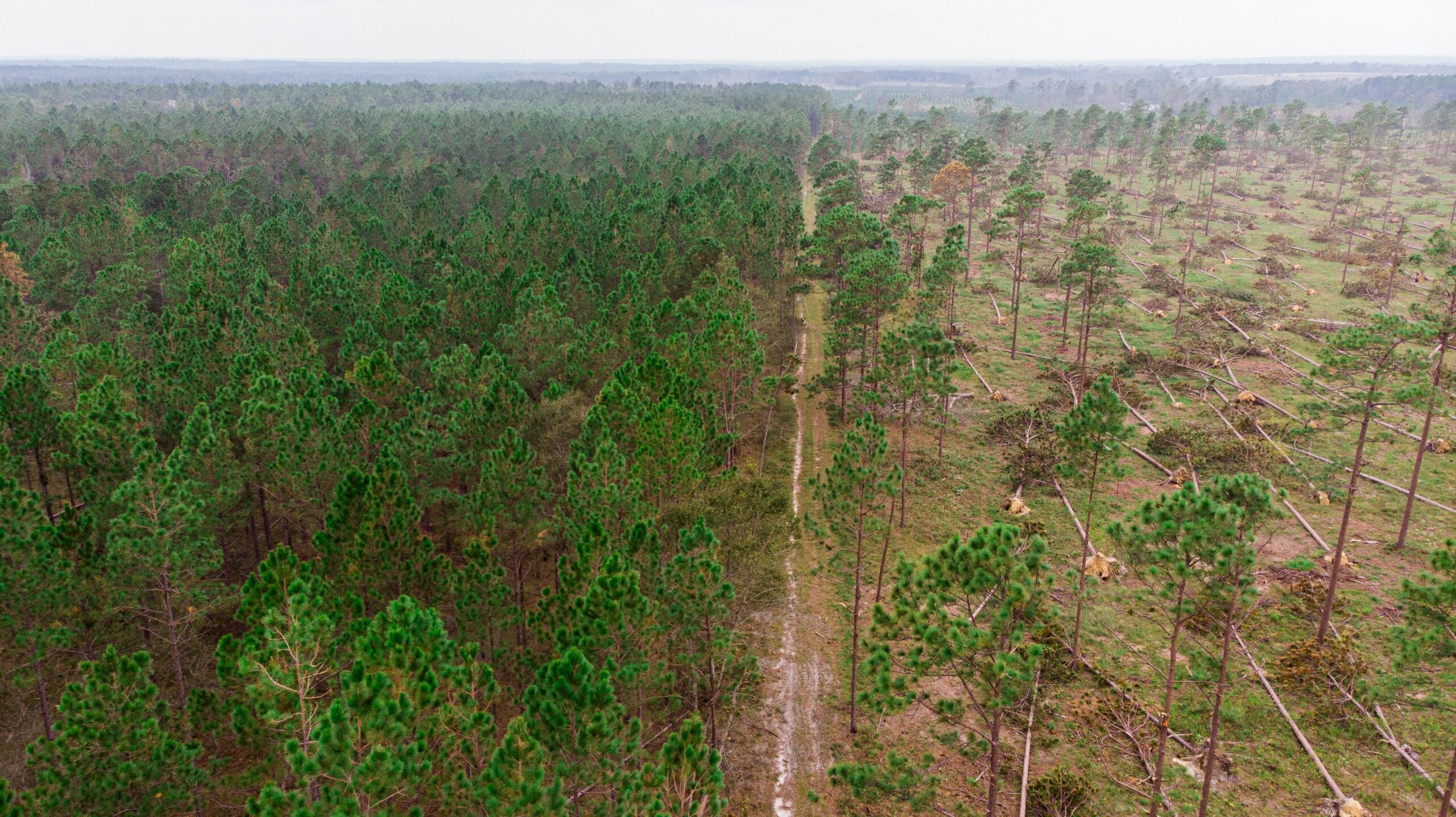
Valdosta, Lowndes County
Hurricane Helene Devastates Georgia’s Forests: A Long Road to Recovery
The big picture: On September 27, 2024, Hurricane Helene tore through South Georgia as a Category-2 storm, leaving millions without power and devastating the region’s timberlands. With wind speeds reaching 100 mph, even the best-managed forests couldn’t withstand the destruction, triggering an immediate response from forestry companies and landowners to clear roads and begin salvage operations.
By the numbers: The Georgia Forestry Commission (GFC) reports that 88% of the land impacted by the hurricane was private forestland, leaving millions of acres of timber in ruins. According to the most recent timber damage assessment, the total timber resource impact is estimated at $1.28 billion, a significant blow to Georgia’s economy and forestry sector.
Specific highlights of the report include:
- 8.9 million acres in the path of the storm
- 1.47 million acres receiving the majority of timber damage
- 26 million tons of pine valued at $728 million
- 30 million tons of hardwood valued at $555 million
- 88% privately-owned land
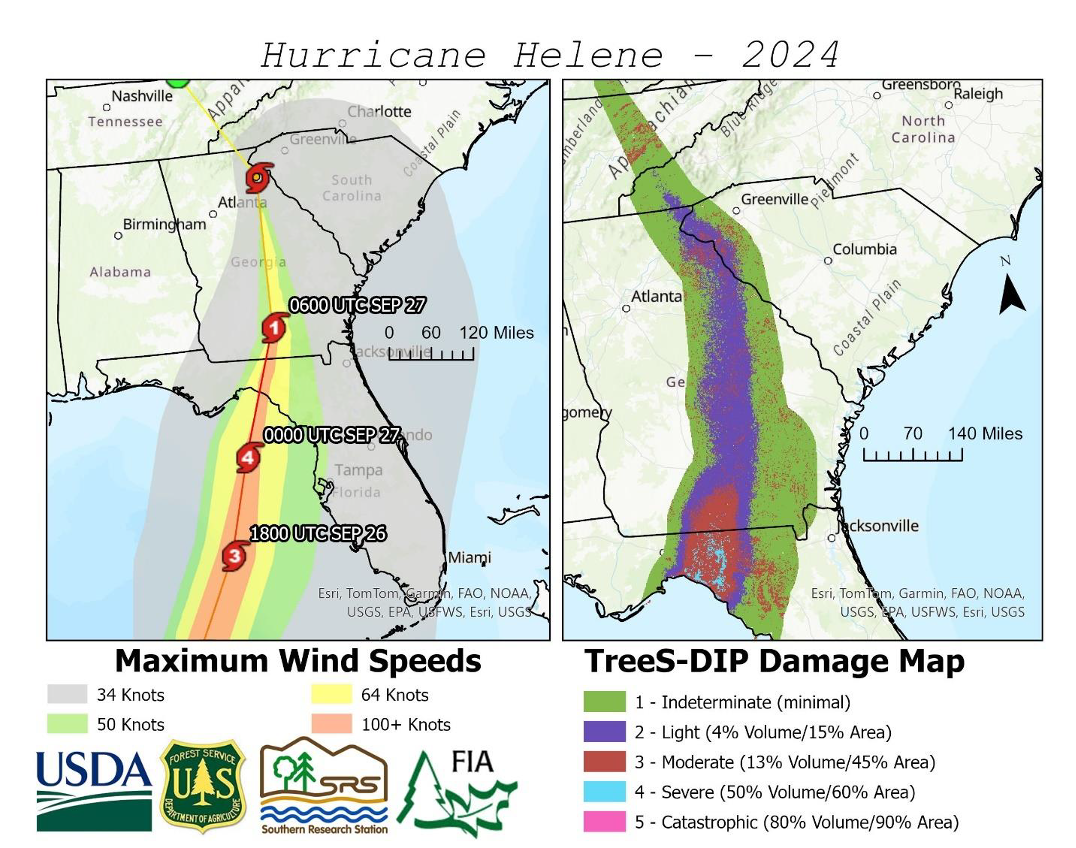
Figure 1: Hurricane Helene wind zone boundaries obtained from NOAA National Hurricane Center (NHC, left) and the TreeS-DIP forest damage map produced by the U.S. Forest Service Geospatial Technology and Applications Center (right, credit GTAC and Dr. Robert Chastain).
Long-term impacts: Millions of acres of forestland across various counties ranging from Lowndes to Richmond were devastated. For many landowners their working forest was a retirement plan or a college fund. An average investment of up to 20 years was lost overnight. Leaving the future of Georgia’s forestry market in question. The storm devastated Georgia’s forest production belt, one of the significant wood baskets in the world, which is integral to the state and national economy.
- After a long history of growing and producing wood products out of this region, the industry will now suffer a total timber resource impact of $1.28 billion dollars. Anticipating short and long term effects on timber production in Georgia, state efforts are to keep forests working in Georgia by encouraging landowners to reforest. GFA is raising awareness among legislators and the public about the economic consequences and the urgent need for policy action to support the forestry sector’s recovery and long-term growth.
GFC Director John Sabo said: “In addition to the economic impact to our private forest landowners, many of whom depend on timberland for the livelihoods of their families, Georgia’s forestlands provide tremendous ecosystem services to Georgians from Savannah to Valdosta to Atlanta and everywhere in between,” said Sabo. “Clean air, clean water, recreation, wildlife habitat…I know that all Georgians support landowners being able to restore and replant their forestlands and to keep our working forests working.”
Hurricane Helene’s Devastation to Georgia’s Most Productive Timberlands:
Assessing the Damage
In conjunction with advocacy efforts, GFA visited with timber landowners who found themselves in the path of the Hurricane Helene and awoke to devastated forestlands and an uncertain future. GFA continues to advocate for public policy solutions at both the state and federal levels that will facilitate recovery, provide financial relief, and protect the long-term viability of Georgia’s forestry sector.
Salvaging Damaged Timber
Challenges continue to grow as landowners rush to harvest damaged timber in the wake of Hurricane Helene. From increased logging costs to beating blue stain, the forestry community strives to salvage Georgia’s most productive forestlands.
Press Conference with Governor Kemp and Georgia Ag Commissioner Tyler Harper
On October 10th, Georgia Forestry Association members joined Georgia Agriculture Commissioner Tyler Harper and Governor Brian Kemp to provide an update on Hurricane Helene’s devastating impacts on Georgia’s agriculture and forestry industries.
ADVOCACY EFFORTS
Georgia Forestry Association’s Recovery Response & Advocacy Efforts
The Georgia Forestry Association (GFA) quickly mobilized to advocate for timberland owners, leading congressional staffers on tours of damaged forests and urging federal and state lawmakers to take immediate action. “The hardest-hit area is Georgia’s most productive wood basket, a key reason we are the #1 Forestry State in the nation,” said GFA President & CEO Tim Lowrimore. “The policies developed in response to this storm must recognize the region’s vital role in our state and the communities that depend on forestry.”
Hurricane Policy Priorities: GFA is actively engaging with state and federal lawmakers to prioritize legislation addressing the impact of Hurricane Helene on the forestry sector, focusing on creating incentives and relief programs that help stabilize the forest products market, protect land value, and ensure the sustainability of forestry operations in Georgia. In addition to providing education and coordinating with key elected officials, GFA has prioritized:
Federal Policies including Block Grant Legislation and the Permanent Crop Loss Program (Farm Bill)
- Block grants offer state agencies the flexibility to allocate resources in response to the specific conditions and needs of affected regions. In the forestry sector, where storm impacts can vary widely across different landscapes, block grants provide the ability to implement localized solutions that address the unique challenges faced by impacted areas. By empowering state agencies with discretionary funding, these grants facilitate the swift repair of damaged infrastructure, support reforestation efforts, and deliver targeted assistance to forest landowners.
- A permanent crop loss program tailored to forestry is critical to safeguarding the economic stability of forest landowners and forest operators in the face of increasingly frequent natural disasters. Existing agricultural loss programs do not provide support for forestry. Establishing a forestry-specific program would ensure that forestry landowners have access to timely and predictable financial relief in the face of life-altering disasters, thereby encouraging sustainable replanting efforts and mitigating long-term economic loss.
State Policies including Harvest Tax Suspension and a Reforestation Tax Credit
- The temporary suspension of the state harvest tax on timber for the fourth quarter of 2024 is essential to alleviating financial pressures on landowners affected by Hurricane Helene. By suspending this tax, the state can provide landowners with the short-term relief necessary to reinvest in operations and accelerate recovery, ultimately benefiting both the forestry sector, rural communities and the broader economy.
- A reforestation tax credit, modeled after the success of Georgia House Bill HB4EX following Hurricane Michael, would provide financially-strained landowners in affected areas the opportunity to engage in reforestation efforts. A targeted tax credit would not only promote sustainable forest management but also encourage proactive investments in resilience, contributing to the health of Georgia’s forestry sector and rural communities.
Collectively, these policy initiatives represent a comprehensive approach to disaster recovery, addressing both immediate and long-term challenges faced by the forestry sector.
HURRICANE RELIEF FOR LANDOWNERS
USDA Announces Flexibilities to Respond to 2024 Hurricanes
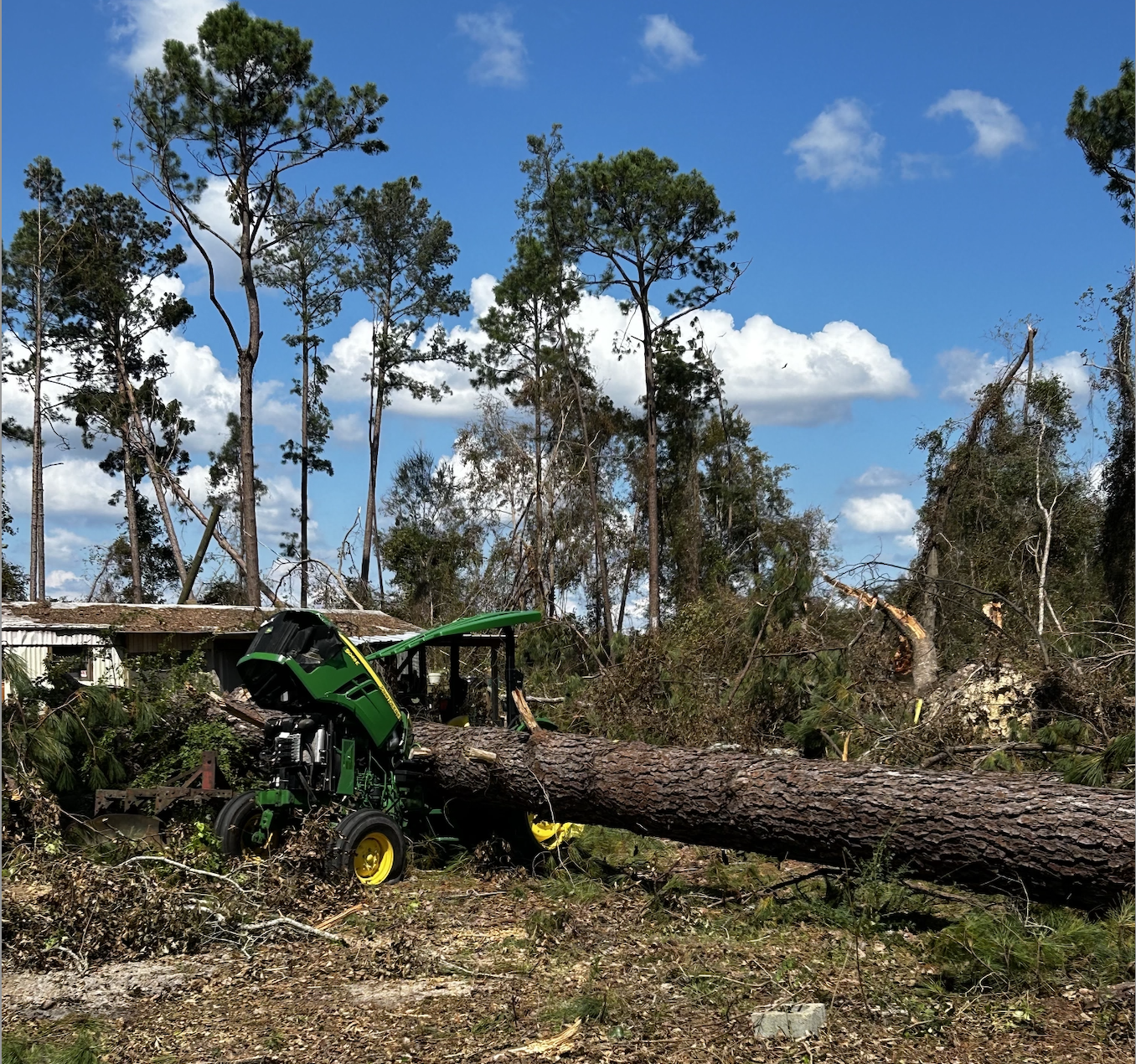
In response to 2024 hurricanes Debby, Helene and Milton, on December 5, 2024, the U.S. Department of Agriculture announced its plan to streamline and provide flexibility for ECP and EFRP applicants to start non-ground disturbing activities like surface debris removal and fence restoration without FSA prior approval or on-site inspection.
These flexibilities on environmental compliance requirements will allow participants to restore private forestland to pre-disaster conditions and prevent subsequent damage- while also addressing debris hazards to natural resources, critical infrastructures, and public health and safety.
According to the USDA, “Due to emergency circumstances, FSA received a categorical exclusions waiver that will allow alternative arrangements to meet National Environmental Policy Act (NEPA) compliance for seven ground disturbing activities. Because these activities occur in locations where the natural disaster event itself caused the ground disturbance, these restoration activities have low potential to adversely impact resources.
- The exclusions wavier covers the following practices:
- Fence replacement
- Sediment removal, incorporation, grading, shaping and leveling
- Tree, root and stump removal
- Roads, bridges and culverts necessary to facilitate forest restoration
- Burning of woody debris
- Vegetation removal, including tree stumps, on 40 or more total acres
- Clear cutting operations for timber on 100 or more total acres.”
Claim Timber Losses and Defer Taxes on Salvaged Timber Sales
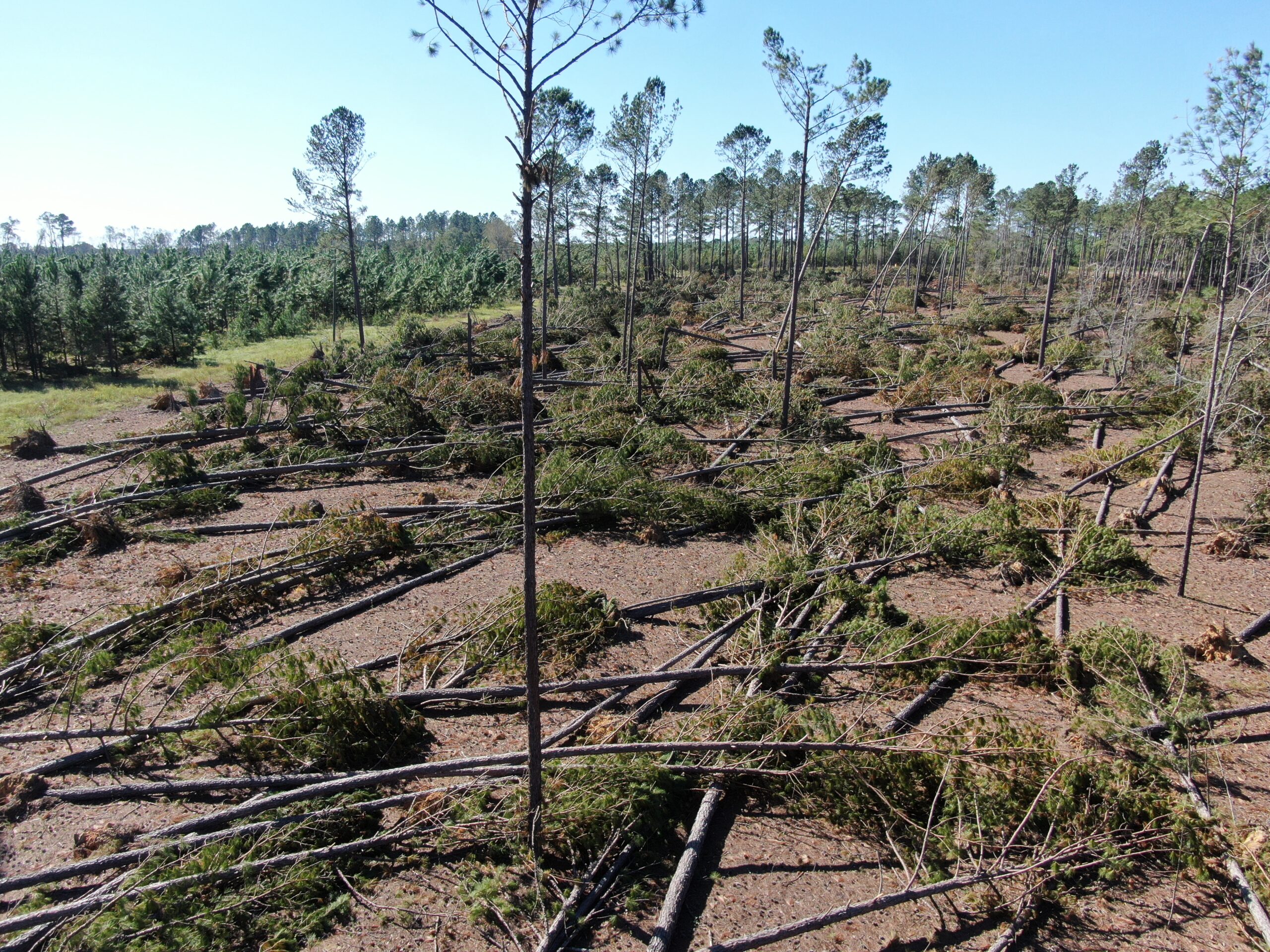
Seventy-one Georgia counties have been declared by the President as federal disaster areas (DR-4830-GA) making them eligible for individual and/or public assistance. This includes landowners who have suffered significant timber losses. Harley Langdale Jr. Center for Forest Business and University of Georgia Warnell School of Forestry and Natural Resources faculty members Drs. Yanshu Li, David Dickens, and David Clabo have summarized how to claim timber losses from Hurricane Helene on your federal tax return.
Click here to read more about potential claim deductions and how you may be able to defer taxes on salvage timber sales.
Emergency Forest Restoration Program
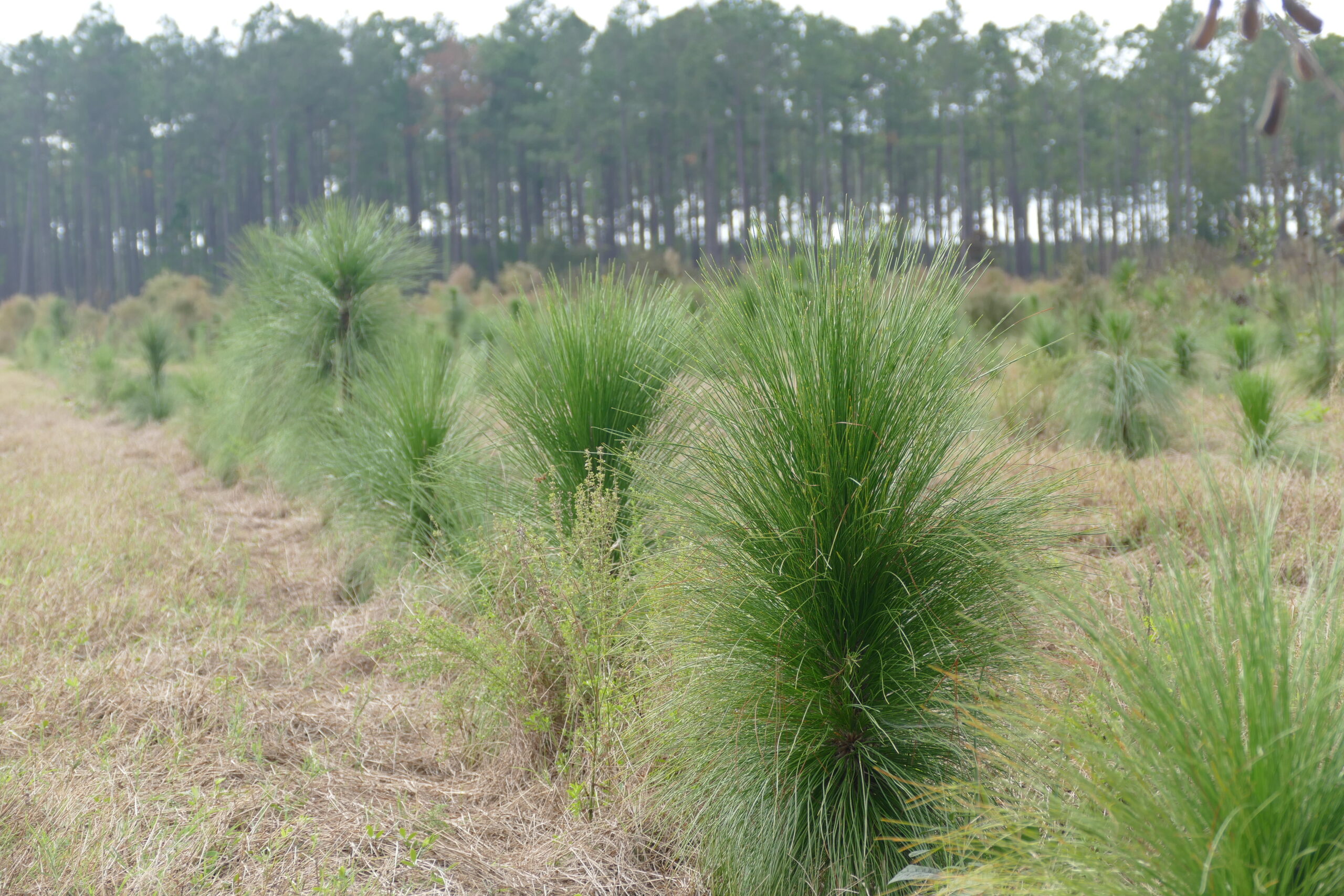
The “Emergency Forest Restoration Program” administered by the U.S. Department of Agriculture Farm Service Agency (USDA FSA) will help pay up to 75% of the cost to restore land for items such as debris removal, site prep, fencing, fire lines, etc. FSA works closely with the Georgia Forestry Commission on the implementation of this program. Federal cost share payments can take up to 6 months to a year.
Click here to read more about the Emergency Forest Restoration Program


This was amazing , I am glad to say that this helped me UNDERSTAND hurricane helene , I used this to cite in the nordson challenge essay , and I was told i did amazing thanks to this website !! All of this is true thank you so much!!